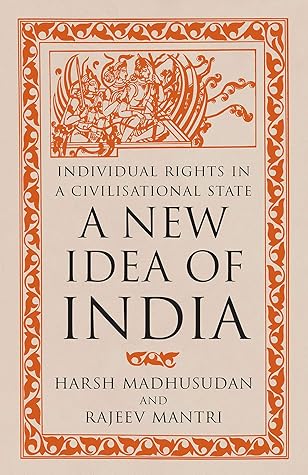More on this book
Community
Kindle Notes & Highlights
Read between
December 9, 2020 - April 24, 2021
In India, we routinely use terms such as Right and Left in our political discourse. As a convention and a shorthand, this is understandable. But the meaning ascribed to these terms in Western democracies is hardly transferable to India.
nation is a soul, a spiritual principle. Two things which, properly speaking, are really one and the same constitute this soul, this spiritual principle. One is the past, the other is the present. One is the possession in common of a rich legacy of memories; the other is present consent, the desire to live together, the desire to continue to invest in the heritage that we have jointly received. Messieurs, man does not improvise. The nation, like the individual, is the outcome of a long past of efforts, sacrifices, and devotions.
The writers on Dharma Shastra meant by ‘dharma’ not a creed or religion but a mode of life or a code of conduct, which regulated a person’s work and activities as a member of society and as an individual and was intended to bring about the gradual development of a person and to enable him to reach what was deemed to be the goal of human existence.13
Who knows, and who can say Whence it all came, and how creation happened? The gods themselves are later than creation, so who knows truly whence it has arisen? Whence all creation had its origin, He, whether he fashioned it or whether he did not, He, who surveys it all from highest heaven, He knows—or maybe even he does not know. – The Nasadiya Sukta (the Hymn of Creation)1 in the Rig Veda (10:129)
As physicist Richard Feynman said, science is belief in the ignorance of the experts.


